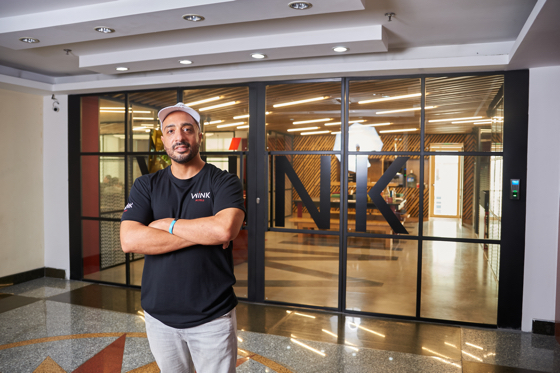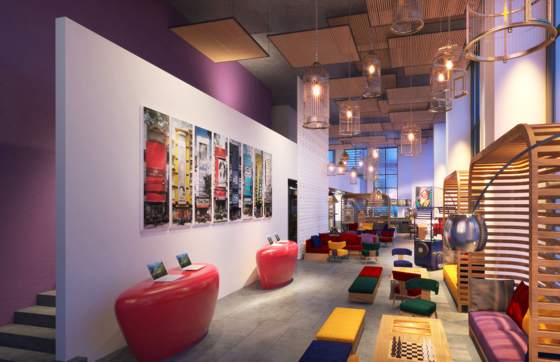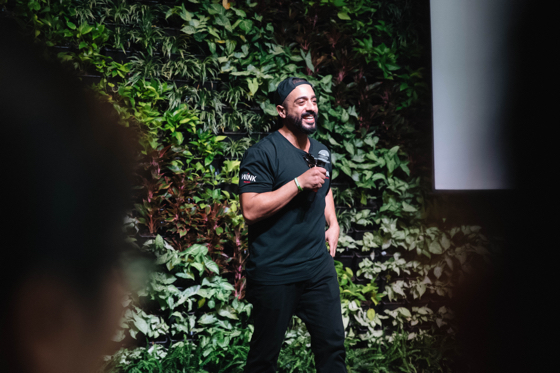When a young, hotshot commercial real estate broker presented on career day at Michael Piro’s Vancouver, Canada, high school, everyone in the room turned around and said, “Michael, that’s going to be you.”
As it turns out, they were right. But little did they know Piro would make his mark in Vietnam.
Coming from humble beginnings in a home with six children and working hard by the time he was 13, Piro has hustled his way through real estate sales and fund management to become CEO of Vietnam’s first homegrown hotel brand, Wink Hotels. At about US$70,000 cost per key, the first select-service, hyper-local lifestyle property is set to open in March. Another eight are financed and under development in markets ranging from Ho Chi Minh City, Danang and Hai Phong, to Tuy Hoa, Can Tho, Ha Long and Vung Tau.

Conceived by developer Indochina Kajima, Wink is operated by Indochina Vanguard (both joint venture companies with Indochina Capital, where Piro has toiled the past 13 years, Japanese construction giant Kajima Corp. and Vanguard Hotels, respectively). The 237-room Wink Hotel Saigon Centre in Ho Chi Minh City will be followed by the 243-room Wink Hotel Danang Centre and another in Danang as part of a mixed-use complex along the Han River. The group plans to expand to at least 20 locations in the next five to seven years in major Vietnamese cities. Growth outside Vietnam could follow.
Initially, about 3,000 rooms are in the works and set to open by 2023. “The goal is to get up to 20 to 25 hotels in Vietnam and then potentially throughout Cambodia, Laos and Myanmar – kind of build an Indochine trail with these properties,” Piro said.
The brand is going to target young, upwardly mobile Vietnamese who don’t have a lot of options at the US$70 price point. About 48% of Vietnam’s 96 million inhabitants are under the age of 34, and domestic tourism grew at a 22% clip from 2014 to 2019. While COVID-19 is still impacting travel, the virus is under control there and travel is slowly picking up. In fact, Piro said he is now on a domestic flight every week and that locals are living more freely again within the confines of Vietnam.
Piro told HOTELS from his Hanoi home that about 83% of the Vietnamese hotel market is unbranded mom-and-pop “resting houses” with anywhere from 25 to 90 rooms. Wink’s aim is to consolidate that local demand with a product that speaks to locals with, among other things, a lot of tech-driven amenities, a great bed and strong shower, social public spaces, grab-and-go local food and a partnership with a co-working company.
“We’re going to provide a better product at that price point. I don’t care what Holiday Inn Express does, or what Accor does with Ibis. They can do whatever they want. I’m very specifically going after this very local market,” said the confident 36-year-old. “We can move quick and really consolidate demand.”
Started with a burger
Piro attributes his current level of success to a cheeseburger. On a trip to McDonald’s during high school, with no money in his pocket, the only friend who would share his meal was Vietnamese. “He broke his hamburger in half and we ate it together,” Piro said. “We understood each other and we looked out for each other after that.”
Then his first love was the only Vietnamese girl in the high school, which helped him fall in love with the culture. “They’re all really strong-minded, and I really like them because we looked out for each other,” he said.
After some initial successes in local commercial real estate put some money in his pocket, one of his friends told him he was going to Vietnam, and Piro decided to join the trip. It was 2006, and as a young real estate pro he looked at Vietnam and saw nothing but potential. On his way back to the airport at the end of the trip he saw a CBRE sign, and as soon as he got home he wrote them a letter asking for an opportunity. The one-line response from CBRE: “The only way to get a job with CBRE Vietnam is to get on a plane.”

A year later, at age 21, he bought the plane ticket and landed the job – but he had to start the next day without going back home to close his affairs.
He initially was sent to Danang to sell residential real estate at a somewhat troubled development. “I’m 20 years old at the time, wearing my US$12 Vietnamese tailored shirt and tie, walking into this office where I meet Peter Ryder, who’s the CEO of Indochina Capital… I’m sitting in this sleepy beach town trying to sell high-end condos and I just worked, worked, worked. And I sold them.”
After becoming the sales hero of the project by age 23, Indochina Capital recruited him away from CBRE. “I joined them as the lowest-level guy in the company full of all these Ivy League graduates,” said Piro, who didn’t get a formal college education. “I’m just the sales guy, but I was thinking I’m going to run this company one day. I just worked my way up from the sales floor through the construction and development side and then onto the investment team. Now I’m the COO, the second in command in the company, and a shareholder.”
Piro went on to manage three privately held real estate funds with about US$500 million in equity. He helped build the Hyatt Regency Danang, the Four Seasons Nam Hai and Six Senses Con Dao, all the while learning about luxury hotels but never having stayed in one. He started to develop a love for the hotel business and creating experiences for guests.
When those funds were concluded and Piro was asking what was next, the idea was hatched to create a hotel concept in a more affordable sector. “We said, ‘Why don’t we bring our same level of love and attention to detail that we’ve done in the luxury space for the 3- to 4-star market that everyone could access?’”
Now five years on, Wink is ready to roll, even in the middle of a pandemic.
The road ahead
When asked to forecast for the first hotel opening in March, Piro said it would be a major victory if the hotel is half full in 2021. “I think we’re all kind of hopeful that by the second half of next year that at least the visa or the quarantine procedures to get into Vietnam will be somewhat simplified to allow more streamlined entry,” he added.

In the meantime, his biggest worry is keeping his teams together and motivated after spending so much time and effort recruiting just the right people. “I just hope that the market allows me to hold this together long enough to be able to take advantage of the future hotels,” he said, “because the team we’re building is meant to service multiple hotels. If there are delays then slowly someone is going to come to me and say, ‘start to make some changes. We’re not carrying all these people.’”
On a more positive note, Piro said there’s lots of opportunity in Vietnam, “but don’t come with a cookie-cutter mentality… Come with an open mind. Come with respect for the culture and the opportunities in Vietnam are endless. And I’m living proof of that.”

